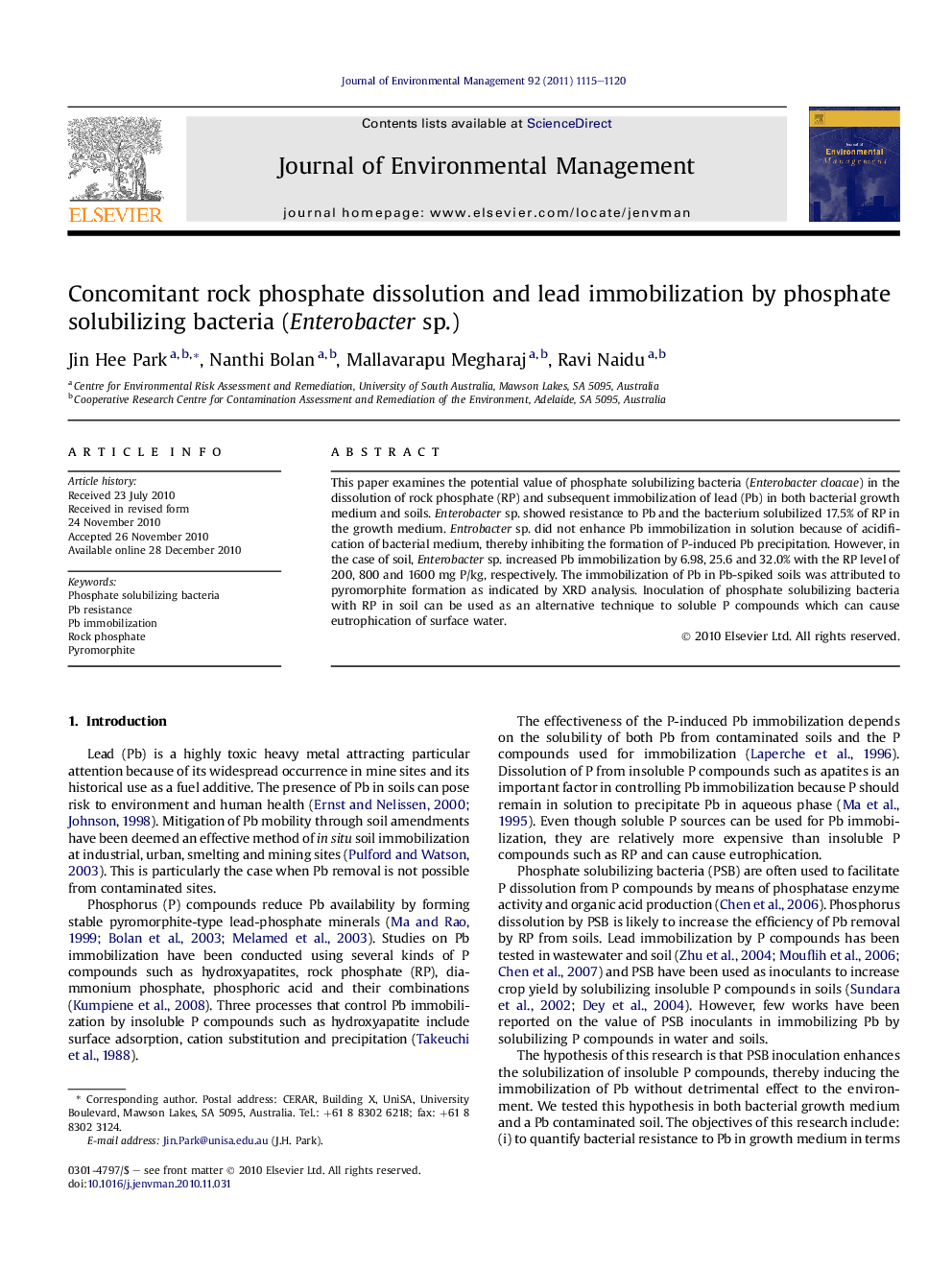| Article ID | Journal | Published Year | Pages | File Type |
|---|---|---|---|---|
| 10505579 | Journal of Environmental Management | 2011 | 6 Pages |
Abstract
This paper examines the potential value of phosphate solubilizing bacteria (Enterobacter cloacae) in the dissolution of rock phosphate (RP) and subsequent immobilization of lead (Pb) in both bacterial growth medium and soils. Enterobacter sp. showed resistance to Pb and the bacterium solubilized 17.5% of RP in the growth medium. Entrobacter sp. did not enhance Pb immobilization in solution because of acidification of bacterial medium, thereby inhibiting the formation of P-induced Pb precipitation. However, in the case of soil, Enterobacter sp. increased Pb immobilization by 6.98, 25.6 and 32.0% with the RP level of 200, 800 and 1600 mg P/kg, respectively. The immobilization of Pb in Pb-spiked soils was attributed to pyromorphite formation as indicated by XRD analysis. Inoculation of phosphate solubilizing bacteria with RP in soil can be used as an alternative technique to soluble P compounds which can cause eutrophication of surface water.
Related Topics
Physical Sciences and Engineering
Energy
Renewable Energy, Sustainability and the Environment
Authors
Jin Hee Park, Nanthi Bolan, Mallavarapu Megharaj, Ravi Naidu,
